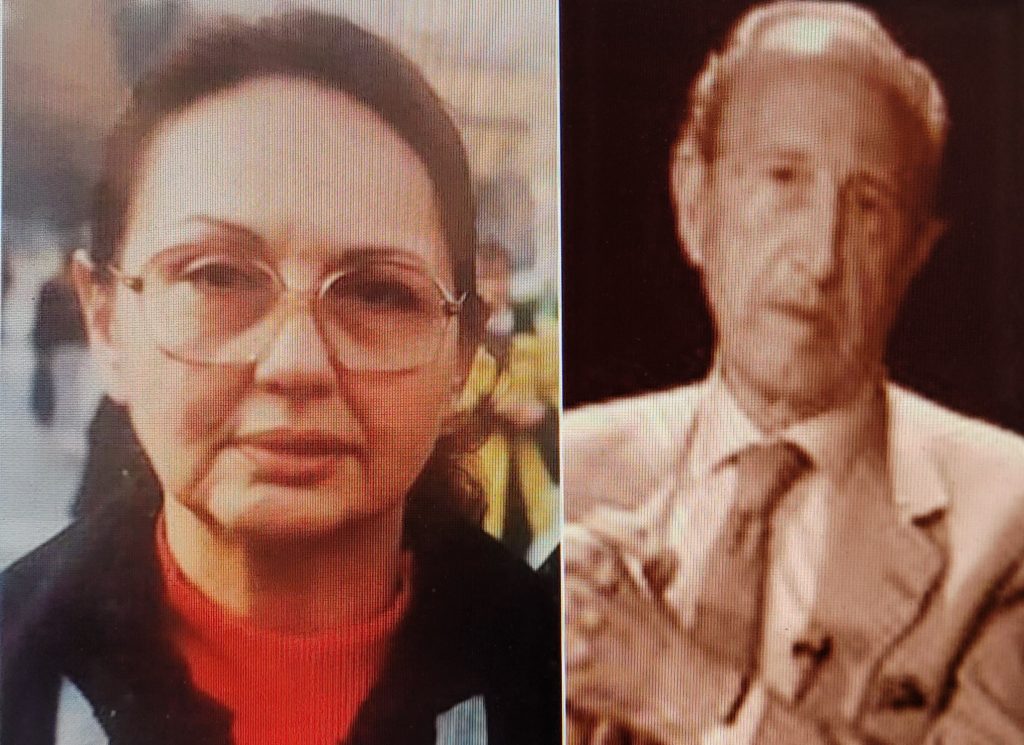
By Muç Xhepa/
Translated from the Albanian by Dita Gjuraj/
Winter. The cold in the cell permeated to the bone. They had taken my shoes and my socks were freezing to the wet cement floor. Ice … Then the interrogator entered.
“Hey, tell me why you designed the building that way, so modern? Cubist? In the middle of Tirana?
His voice became … distant. Like it wasn’t being directed at me but at the resident whose apartment I had designed. I had two reconstructed into one, with a real fireplace. I actually built one for him.
“Are you trying to disgrace us?”
I, or the apartment dweller? We’re friends. He writes books. For your master. My head was buzzing.
“I had no bad intentions,” I started mumbling, ”My family is … like yours … from the class …”
He hit me in the face … an open hand? … a fist? … everything went dark.
My old homeroom teacher was on Messenger, talking to me about the talented translator … but I was lost in thought on what architect Velo had undergone in interrogation.
“You aren’t listening!” she said.
“Forgive me. And then … he met with you. He was …”
“Yes, unemployed. Pension … nothing from the translations.”
In her lap teacher Kati was holding a lovely little dog with long, light brown hair. Its ears perked up, also trying to listen.
“I got him into the NGO I founded. Member of the board, a recognition he deserved but was not offered by anyone else. We were honored. He worked for several years but when age pressed its full weight on him, he asked to speak to me in private. ‘Kozara, I want to treat you to a coffee. And, there is something I don’t want to take to the grave with me’. What are you saying, Isuf? You’ll be with us for many, many years to come, I said. But, as if he had sensed it, the unfortunate didn’t live long after that.”
“The great translator. His life spent in the shadow …”
“That’s the point. That’s just what I want to talk to you about today. We went to ‘Postiqja’ café. It was a sunny day and we decided to sit outside. The brown suit he was wearing was beginning to fade and it looked loose on him. I got a lump in my throat. It was like seeing my father when he was released from prison, withered and battered by life in hell.”
Teacher Kozara’s words were wet with tears. She stopped talking and pet her best friend. It rose up to her face and licked the tears away.
“We spoke of what he valued the most, human rights. He delicately asked me, ‘Kozara how do you see the work of a translator?’ Isuf Vrioni looked at me with sadness in his eyes. It was clear he wanted to start a difficult conversation, one that was the cause of great inner suffering. The quality of a translator’s effort is the making or the breaking for a work of literature, touched I responded. ‘You are right. It makes the writer well-known’. Yes, it either gives the work life or buries it. You are the ultimate example … you made the author famous. His hand started shaking. He placed the coffee cup on the table and came closer to me. ‘Fine, when we were in the big prison, he was afraid to give me recognition, but after all these years …’ At a loss for words, I bowed my head. My heart hurt for him. We sat in silence … for a long time.”
“One winter day we worked the whole morning. At lunchtime he told me he had to go to a meeting. He returned an hour later, fed, full of energy. He asked me how much longer I would need to consult with him. I hadn’t put anything in my mouth all day long. I was lightheaded. We finished work late in the evening.”
The teacher put down her dog, got up and got a bottle of water to wet her quivering lips.
“We left together after the work was done. A cold wind was blowing outside. Walking past the ‘Palace of Culture’, I shyly said that at this hour it would be difficult to find a bed in a heated hotel. The one in the center of the city was reserved for foreigners. The others in the vicinity … Without letting me finish speaking, he wished me a good night and took off towards his home in the modern, cubist building.”
Teacher Kozara Kati placed her hand on her trembling lips, send a kiss and went off Messenger.